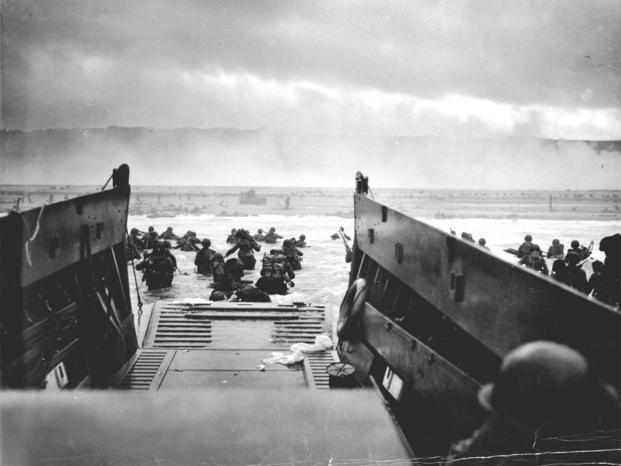More than 160,000 Allied troops landed along a 50-mile stretch of heavily fortified French coastline, to fight Nazi Germany on the beaches of Normandy, France, with the support of 5,000 ships and 13,000 aircraft.
June 6, 1944, was perhaps the most pivotal day in World War II.
The Normandy beaches were chosen for D-Day because they lay within range of air cover, and were less heavily defended than the obvious objective of the Pas de Calais, the shortest distance between Great Britain and the continent.
"This operation is not being planned with any alternatives. This operation is planned as a victory, and that's the way it's going to be. We're going down there, and we're throwing everything we have into it, and we're going to make it a success." -- Gen. Dwight D. Eisenhower
"We were the ones, who gave France their freedom. Seeing this -- being honored and knowing that those who gave their lives have not been forgotten -- that is what's important." -- Charles Wilson, U.S. Army 4th Division, Battery C tank driver
Airborne drops at both ends of the beachheads were intended to protect the flanks, as well as open up roadways to the interior. Six divisions were to land on the first day; three U.S., two British and one Canadian. Two more British divisions and one U.S. division were to follow up after the assault had cleared the way through the beach defenses.
Disorganization, confusion, incomplete or faulty implementation of plans characterized the initial phases of the landings. This was especially true of the airborne landings that were badly scattered, as well as the first wave units landing on the assault beaches. To their great credit, most of the troops adapted to the disorganization. In the end, the Allies achieved their objective.
The cost in lives on D-Day was high. More than 9,000 Allied soldiers were killed or wounded, but their sacrifice allowed more than 100,000 soldiers to begin the slow, hard slog across Europe, to defeat Adolf Hitler's crack troops. As Gen. Dwight D. Eisenhower said in a broadcast to the citizens of occupied Europe following D-Day, "Although the initial assault may not have been in your own country, the hour of your liberation is approaching."
Military.com salutes the people who made the Allied invasion of Normandy a success with these featured articles. Read soldiers' firsthand accounts of their D-Day experiences, and learn more about the key leaders and how events unfolded on that fateful day.
























